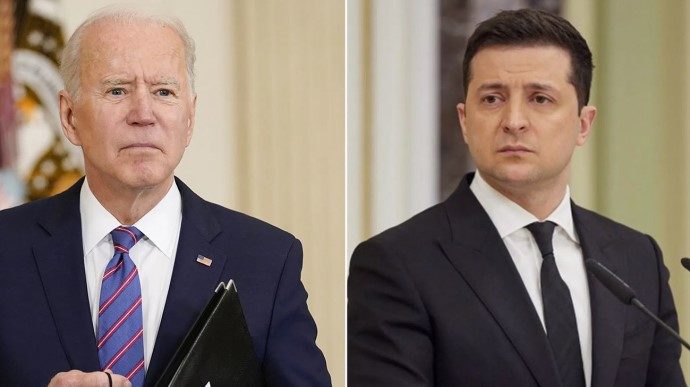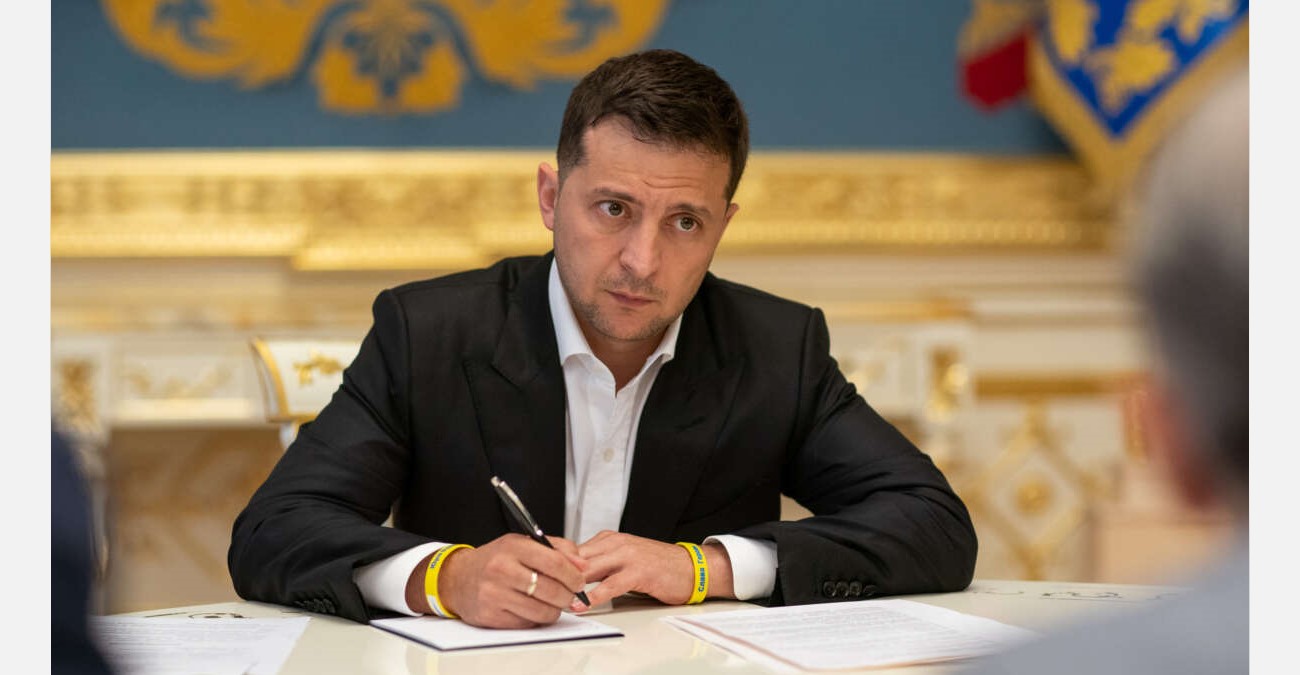Ukraine has been urging the US to lift the long-standing restrictions on long-range weapons for strikes against military targets in Russia for months as Russia keeps hammering Ukraine's civilian and energy infrastructure from bases out of reach. Yet, for months, these urgent pleas have fallen on deaf ears as Biden’s administration grapples with fears of nuclear escalation amid Putin’s persistent “red line” threats.
Zelenskyy's office pinned high hopes on turning the tide during his recent visit to the US, where long-range strikes became one of the key points of his Ukrainian victory plan. However, while he secured some additional aid by presenting his peace plan to Biden and the presidential candidates, the trip ultimately fell short as the key agenda — lifting restrictions on long-range strikes — hit a brick wall.
However, former US Ambassador to NATO Kurt Volker believes the tides could turn faster than they appear. Despite their electoral rivalry, both Biden and Trump might just hit upon the reasons they need to finally give Ukraine the long-coveted green light to strike at Russia.
Consequences beat restrain to keep Russia in check
In a recent interview with Deutsche Welle, Kurt Volker, former US Ambassador to NATO and Special Representative for Ukraine Negotiations (2017-2019), argued that Russia's nuclear threats should not hold Western leaders back.
Volker stressed that Russia's actions are constrained not by Western restraint but rather by the possible consequences of escalation.
"Western leaders act out of fear of what Russia might do. This is a mistake! Russia is not deterred by our restraint. Russia is just trying to defeat Ukraine right now. It's not succeeding in doing so, but not because Moscow is 'restraining' itself," Volker told Deutsche Welle.
He believes that allowing Ukraine to strike targets deep within Russia could drastically alter the landscape of the war.
Currently, Ukraine can strike Russian military objectives on occupied Ukrainian territory and up to approximately 100-150 kilometers (roughly 90 miles) from the front lines using drones, artillery, and mid-range missiles like HIMARS. Long-range missiles, such as ATACMS and Storm Shadow, can reach up to 300 kilometers (approximately 150 miles) or more, allowing for strikes deeper into Russian territory.
This restriction hampers Ukraine's ability to disrupt major logistics hubs, command centers, and critical infrastructure deeper within Russia, hindering Russian forces' ability to regroup and resupply effectively.
This pivotal decision depends mainly on the US government, which supplies long-range ATACMS missiles to Ukraine. The American stance also sets the tone for European nations, such as the more cautious Germany, which tends to follow the US’s lead on military support for Ukraine.
Moreover, Ukraine is not allowed to use British-provided Storm Shadow long-range missiles because they also require US permission to tap into cartography data for precise missile guidance.
While the Western leaders hesitate to permit long-range strikes, voicing concerns about potential Russian retaliation, Volker contends that what truly deters Russia from resorting to nuclear weapons is the fear of potential retaliatory strikes from NATO.
Putin’s nuclear doctrine is just smoke and mirrors
In September, the Russian President expanded Russia's nuclear doctrine to justify nuclear responses in the case of “aggression against Russia by a non-nuclear state with support or participation from a nuclear state.” This appears to target the possibility of Ukraine carrying out long-range strikes on Russian soil with Western weapons.
Volker, however, remained skeptical about these recent tweaks to the nuclear doctrine.
"I think Putin said this only to influence Western policy, to force it to refuse to help Ukraine and not allow Kyiv to use long-range weapons systems," he said.
He argued that Putin is not bound by the doctrine, which he dismissed as "just a piece of paper for him." Instead, Volker asserted that Russia's true deterrent lies in the potential blowback from using nuclear weapons, which, "as he understands, would hit Russia very hard."
Trump tweaks his tune after meeting Zelenskyy
During his recent visit to the US, President Zelenskyy met with President Biden, Vice President Harris, and former President Trump to unveil a Ukrainian victory plan. Among the key points he brought to the table were requests for NATO membership, a steady flow of advanced arms, and the lifting of existing weapons restrictions.
Following the visit, Biden announced a substantial $7.9 billion in military aid, yet hesitation around long-range strikes on Russian territory lingered.
"I don’t think it was a very successful visit. The main goal for the Ukrainians was to get the Biden administration to allow the use of American weapons for strikes on targets deep within Russian territory. In the end, that didn’t happen," Volker said.
However, tensions flared after Zelenskyy visited an ammunition plant in Pennsylvania. House Speaker Mike Johnson accused him of meddling in the US election by cozying up to Democratic politicians, as only their representatives accompanied the Ukrainian President during the visit.
Former President Trump also took a jab at Zelenskyy, reversing his previous stance on meeting him. The visit has strained US-Ukraine relations, particularly with Republicans calling for the dismissal of Ukraine's ambassador, Oksana Markarova.
Despite canceling the meeting, Trump eventually met with Zelenskyy and reiterated that he would "quickly end the war if elected." In his electoral campaign, Trump showcased his ties with Ukrainian President Zelenskyy and Russian President Putin.
He pointed out that Trump later spoke about the need for a "fair peace for Ukraine," which Volker deemed "a big step forward" from Trump's previous stance that might have required Ukraine to cede territory. The Republican nominee’s rhetoric sharply contrasted with the Biden administration's unwavering support for Ukraine's territorial integrity.
Trending Now
Though the meeting went south, the former ambassador isn’t ruling out the chance that Trump could make a sharp U-turn from his cautious stance if he gets back in office. Volker assumes that Trump might even tip his hat to Zelenskyy for staying out of the impeachment drama that unfolded early in his term.
Another reason for a potential shift is Trump’s tough foreign policy stance, which saw him twisting the arms of Russia and North Korea during his first term. If history repeats itself, he could go beyond simply lifting restrictions and ramping up aid to Ukraine to pressure Russia to the negotiating table.
"But it would have been wiser not to come amid an acute political season, not to allow the topic of Ukraine to become a bargaining chip in inter-party battles," Volker added, arguing that coming during the height of the US election campaign was particularly ill-timed.
US set to greenlight long-range strikes into Russia
Volker predicted that regardless of the election outcome, the US would eventually greenlight Ukraine’s use of transferred weapons for strikes deep into Russian territory. While this could become another “red line” that the West has already crossed, it promises to take a long time to reach that tipping point.
"I assume that even before the election or soon after, the Biden administration will begin to lift these restrictions, perhaps without loud statements, but it will begin," Volker said.
"Sooner or later [future US administrations] will conclude: we should first end the war, and then, to consolidate peace, accept Ukraine into NATO."
Kurt Volker, Former US Ambassador to NATO
Lasting peace hangs on Ukraine’s NATO membership
Kurt Volker firmly advocates Ukraine's NATO membership, believing that without it, Putin will continue to see aggression as a viable option.
In an interview with Euromdain Press, he emphasized the urgent need for Ukraine's immediate NATO membership, a $500 billion lend-lease program, and unrestricted support, including weapons and civilian protection.
Volker pointed out that Ukraine is currently ahead of the game in adapting to new warfare requirements, particularly in drone combat.
He also suggested that future US administrations would likely fall in line with supporting Ukraine's closer ties with NATO.
"I believe they will sooner or later come to a conclusion: we should first end the war, and then, to consolidate peace, accept Ukraine into NATO. Then there will be both lasting peace and conditions for effective deterrence of Russia," he said.
Volker's message is clear: while the nuclear threat should be taken seriously, it should not hold Western policy or support for Ukraine hostage. He calls for a more robust approach, arguing that taking decisive action rather than holding back would be more effective in countering Russian aggression.
Volker's message is clear: while the nuclear threat should be taken seriously, it should not hold Western policy or support for Ukraine hostage. He calls for a more robust approach, arguing that taking decisive action rather than holding back would be more effective in countering Russian aggression.
Read also:
• Six American anti-Ukraine aid myths that just won’t go away
• 5 ways Russia is trying to sway 2024 US elections
• The real problem with Zelenskyy’s victory plan
• Zelenskyy’s ammo plant visit leaves Ukraine caught in US political inferno





